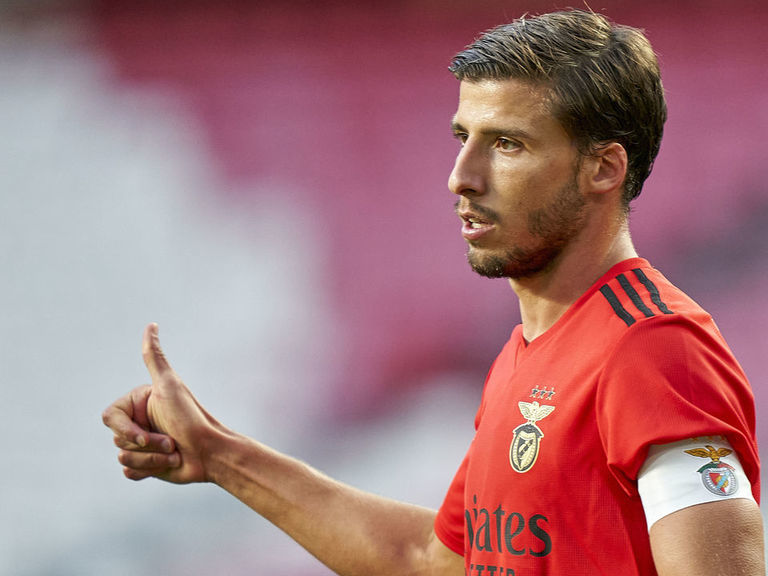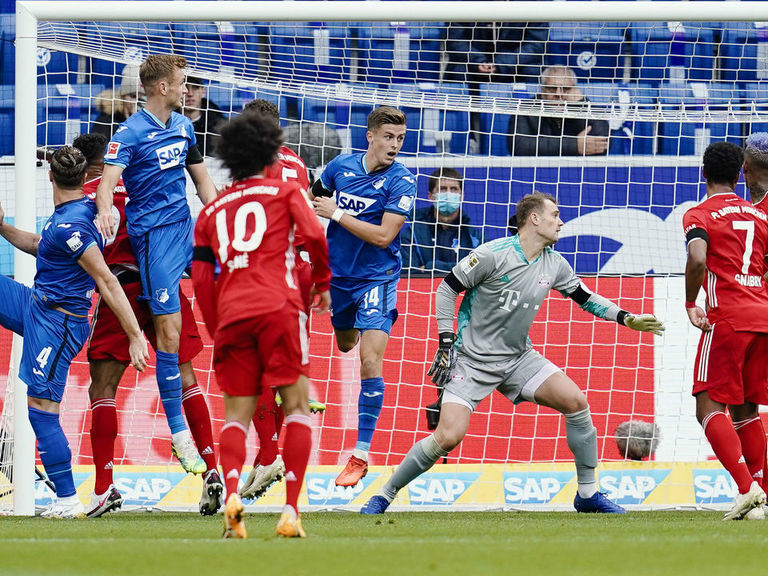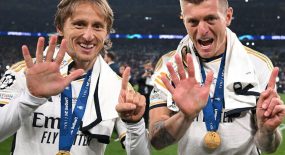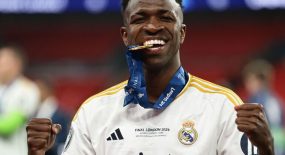ENGLEWOOD, Colo. — The Denver Broncos’ miserable injury luck continued Monday when defensive tackle Jurrell Casey was diagnosed with a season-ending torn biceps, according to coach Vic Fangio.
Casey will become the third Broncos starter who is expected to be lost for the season — linebacker Von Miller and wide receiver Courtland Sutton are the others. And when he is formally moved to injured reserve in the coming days, Casey, a five-time Pro Bowl selection, will become the fourth Pro Bowl player on the team’s IR list, joining Miller, Sutton and cornerback A.J. Bouye. Those players have been named to a combined 15 Pro Bowls.
Manchester City completed the signing of center-back Ruben Dias from Benfica for €68 million, the Portuguese side announced on Sunday.
In a separate deal, the Premier League giants sold center-back Nicolas Otamendi to Benfica for €15 million.
Dias is City’s third major signing of the summer window after Dutch defender Nathan Ake and Spanish winger Ferran Torres.
City were reportedly interested in signing Napoli’s Kalidou Koulibaly – one of Pep Guardiola’s preferred targets – but the asking price was too steep.
The fee for Dias falls just short of a club record. City set the mark with their €70-million signing of midfielder Rodrigo last summer.
Dias, 23, arrives at the Etihad with a wealth of experience despite his relatively young age. He’s made 91 top-flight appearances – all in the Portuguese Primeira Liga – and an additional 24 in European competition. Dias has also represented Portugal on 19 occasions.
City are now much deeper at the center-back position after laboring through the 2019-20 campaign with limited options. Dias could start alongside Ake or Aymeric Laporte in Guardiola’s back four, or even in a back three.
Otamendi, meanwhile, is heading back to Portugal, where he played for Benfica’s rivals, Porto, from 2010-2014. He spent five seasons with City and won the Premier League twice, the League Cup four times, and the FA Cup.
EAST RUTHERFORD, N.J. — Another disappointment. There really is no other way to say it for quarterback Daniel Jones and these New York Giants.
They are now 0-3 in Joe Judge’s first season as head coach after a 36-9 loss to the San Francisco 49ers at MetLife Stadium. Jones has six turnovers in 12 quarters already, with two more coming Sunday. He was charged with a fumble on a poor pitch to tight end Evan Engram in the second quarter and threw a costly interception late in the first half.
At some point, this has to stop. No team can overcome two turnovers from their quarterback on a weekly basis. Jones is on pace for a inexcusable 32 turnovers this season, after spending his offseason trying to reduce the miscues.
Everything you need this week:
• Full schedule » | Standings »
• Depth charts for every team »
• Transactions » | Injuries »
• Football Power Index rankings »
More NFL coverage »
It’s even more troubling considering this an extension of his rookie season. Jones now has 10 career games with multiple turnovers, most in the NFL since the start of last season, according to ESPN Stats & Information. He has multiple turnovers in 10 of his 16 career games.
With the fumble in the first quarter, Jones now has 20 fumbles in his first 16 career games. The only player with more through their first 16 career games in the Super Bowl era (since 1966) is Tony Banks. He had 24.
It does make you wonder if Jones really is the long-term answer for the Giants at quarterback. It’s a question this team will face unless Jones at some point cuts out the turnovers.
Surely the Giants’ struggles and Sunday’s loss is not all on Jones. The Giants allowed 36 points, no punts and no turnovers to a 49ers offense starting backup quarterback Nick Mullens, without its two top pass-catchers (George Kittle and Deebo Samuel) and minus its first two options at running back (Raheem Mostert and Tevin Coleman). That’s only possible by committing costly third-and-long penalties and missing key tackles like the Giants did in this latest debacle.
This will be quite the test for the Giants. Safety Julian Love thought it was “a weak-minded thing to be able to spiral and to dwell on the unfortunate things that have happened in the past.” Well, this is the fourth straight season the Giants appear to be among the league’s worst teams. Can they, at some point, turn it around?
Troubling trend: The Giants haven’t beaten a team better than .500 since defeating the Bears in overtime during Week 13 of the 2018 season, the last game that Odell Beckham Jr. ever played for the team. The 49ers (2-1) weren’t over .500 coming into this game, but they are a quality team having reached the Super Bowl last season. Still, the Giants were outclassed on Sunday. This continues a disturbing trend against quality competition.
The Giants couldn’t beat Mitchell Trubisky and the Bears and a 49ers team starting a backup quarterback over the past two weeks. So where does their first win actually come?
They play next week in Los Angeles against the Rams and the following week on the road against the Dallas Cowboys. The Giants will be significant underdogs in both contests. Maybe the following week when they host the Washington Football Team?
Eye-popping stat: The Giants two longest runs of the season are by their quarterback. Jones had zone-read rushes for 19 and 23 yards on Sunday. They had zero zone-read plays in the first two weeks, per ESPN Stats & Information.
The Giants came into Sunday last in the NFL averaging 52.0 yards rushing per game.
Biggest hole in the game plan: Where is the running game? Sure, there is no Saquon Barkley. He’s out for the season with a knee injury.
But this was a 49ers defense that lost half its front four last week, including star defensive end Nick Bosa. The Giants should’ve been able to do something with the combination of Wayne Gallman, Dion Lewis and Devonta Freeman. That wasn’t the case. They combined for 17 yards on 10 carries.
This is not what you expected from the Giants running attack through three weeks with Jason Garrett as the offensive coordinator. He hasn’t been able to draw up anything with this offensive line to create holes for the running backs, whether it be Barkley, Lewis, Freeman or Gallman.
The way the playing time shook out in Sunday’s loss to the 49ers, it was basically a three-man committee. Lewis took the most snaps with 19, followed by Gallman (17) and Freeman (14).
Bayern Munich tasted defeat for the first time in several months after Hoffenheim pulled off a stunning 4-1 victory over the Bavarians on Sunday.
The loss brought an end to Bayern Munich’s record-breaking 23-match winning streak in all competitions, which began in February.
Ermin Bicakcic and Munas Dabbur gave the hosts a 2-0 lead inside the opening 25 minutes before Joshua Kimnich cut Bayern’s deficit in half with a goal from outside the box.
Hansi Flick’s men failed to mount a second-half comeback, as Andrej Kramaric scored a late brace to secure three points for Hoffenheim.
It’s the second year in a row Hoffenheim have handed Bayern their first loss of the Bundesliga season.
The last time Bayern failed to record a victory was on Feb. 9 when they drew with RB Leipzig. Their last loss came against Borussia Monchengladbach on Dec. 7.
















